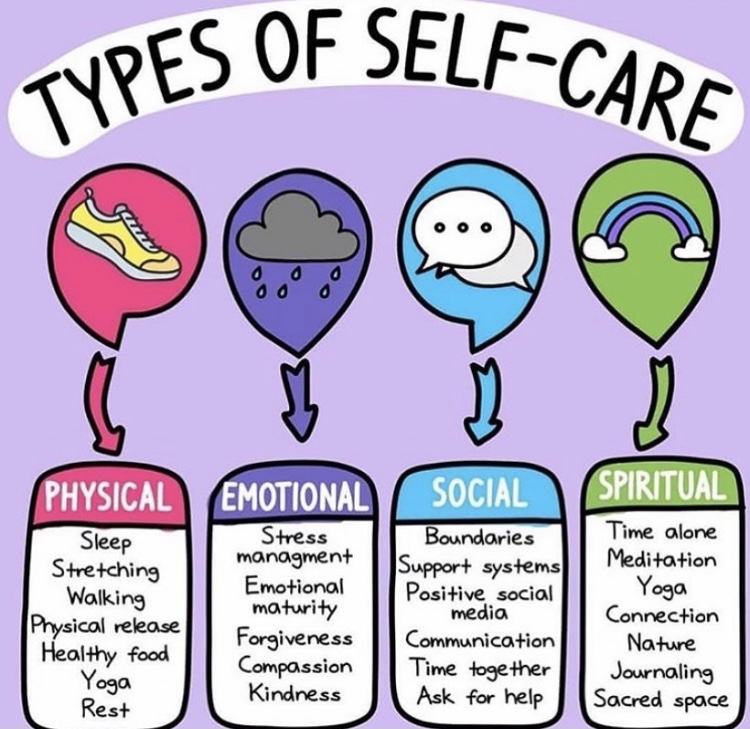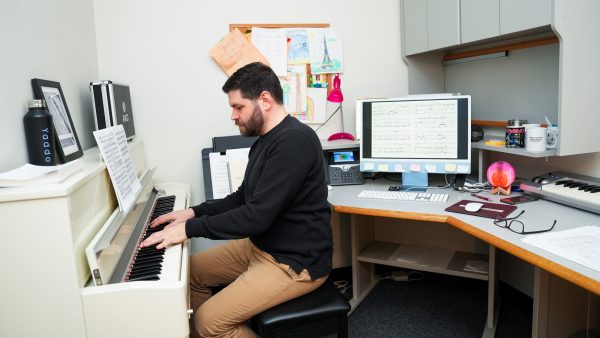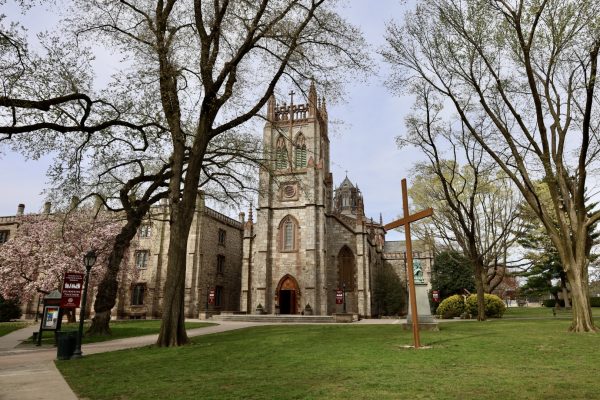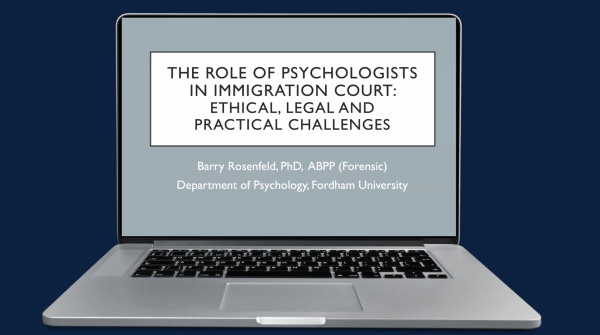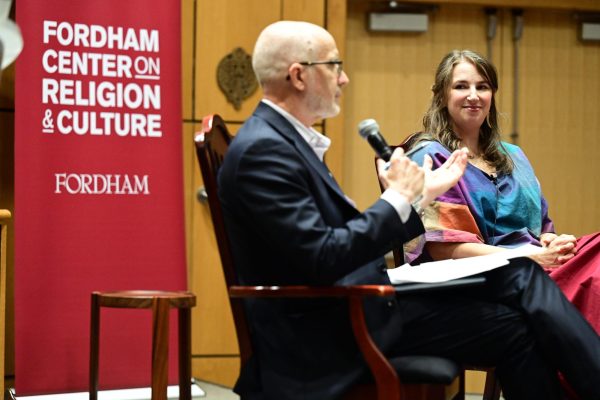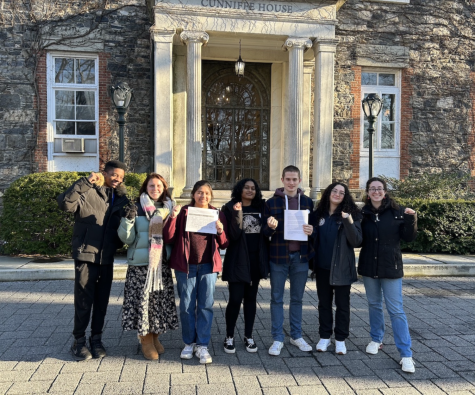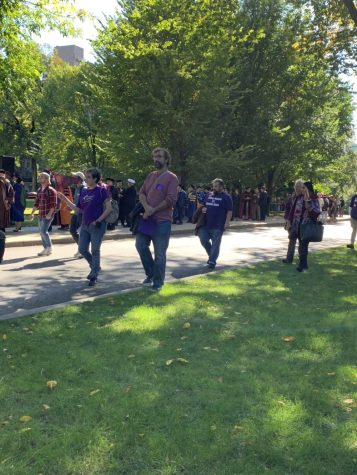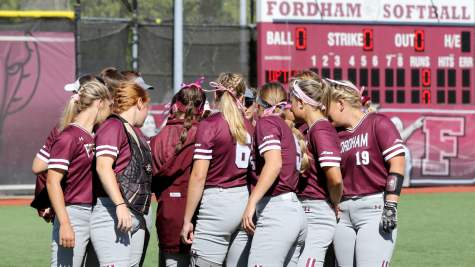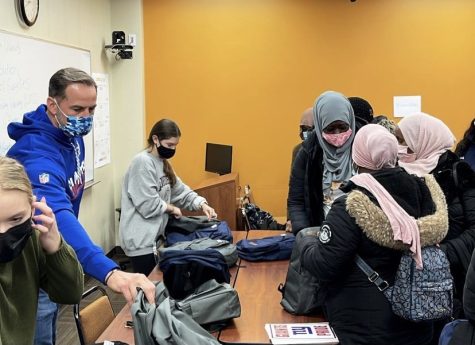Counseling Services Expand: Student Demand Declines
Fordham’s Counseling and Psychological Services (CPS) has seen a modest decline in clinical utilization this year, despite tailoring its programs and services to students’ needs in light of recent events, said Jeffrey Ng, Psy.D., director of CPS.
The year-to-date utilization of CPS has been down about 20% in comparison to last year, said Ng. He added that this decline reflects all of the student populations that CPS serves, including undergraduate students from Fordham College Rose Hill, Fordham College Lincoln Center and Gabelli School of Business as well as graduate and professional students.
According to Ng, the factors that have contributed to the decline in students’ utilization of CPS include fewer students on campus, the shift to primarily remote academic instruction and decreased enrollment.
Since many students are living at home this semester, Ng said that CPS may also be seeing a decline in utilization because students are seeking support and services closer to home.
“Some students may be less distressed while at home because they are able to use existing support systems,” he said.
Although CPS is currently seeing a decline in utilization, Ng said CPS doesn’t expect this trend to continue moving forward.
“We expect demand and utilization to increase once students physically return back to campus fully,” he said.
CPS has seen the current decline in utilization despite offering specific programs related to recent events, including COVID-19, racial justice movements and the election. Ng said CPS has the same amount of financial resources available but has developed new services in response to the emerging needs of students.
CPS is also in the process of changing some policies, such as transitioning from the previous 10-session limit to a more customizable approach, said Ng.
“Our plan moving forward is to continue expanding our suite of clinical services and to make disposition decisions based on students’ presenting concerns, symptoms and their ability to access other mental health resources,” said Ng.
Marina Setaro, FCRH ’21, said she has been taking advantage of CPS’ redesigned resources. She said it has been an adjustment to attend her weekly group therapy meetings over Zoom, but the meetings have helped her prioritize her mental health.
“It’s been nice to have a place to talk about my feelings, especially because the world feels so stressful right now,” Setaro said. “It has been a really grounding experience.”
In response to COVID-19, CPS has strengthened its delivery of telehealth services, customized its in-person service in accordance with Fordham Forward and NYS guidelines and offered many workshops and support groups for students. Ng said these programs are designed to help students cope with COVID-19-related mental health challenges, such as anxiety and social disconnection. Even though these specially-designed resources are available, Ng said they have not been as well-attended by students as anticipated.
CPS’ racial justice-related programs, though, have been fairly well attended, with over 100 student attendees among its race and justice programs, according to Ng. He said ongoing support groups for students of color, in particular, have been popular, as well as other racial justice-related workshops that CPS has offered like Navigating Police Brutality and Racial Trauma.
These racial justice programs were developed in response to the racial traumas and unrest that unfolded over the summer, said Ng. He said CPS also developed various action steps in response to the anonymous testimonials shared by students on the Instagram account @letstalkaboutitfordham and in the context of ongoing conversations with student leaders and groups.
CPS released an Action Plan over the summer outlining measures it would take to respond to the “diverse needs, experiences and identities of all students.”
“One of our primary strategic goals for the current academic year is to increase access and utilization of CPS’ clinical and prevention services by historically marginalized and under-served student populations,” CPS said in their plan in response to recent community feedback.
Ng said CPS has begun to actualize this goal by expanding its website to include more information for students of color and increasing drop-in support groups for BIPOC students, non-BIPOC students of color and allies and partnering with ASILI, Rose Hill’s Black Student Alliance.
Although many of these new racial justice initiatives were created in direct response to the racial injustice and unrest that occurred over the summer, Ng said CPS had been addressing anti-racism and other forms of identity-based oppression long before this summer’s Black Lives Matter movement.
“We developed two specialized clinical positions in 2018 that focused on diversity, inclusion and social justice initiatives and have been conducting multi-cultural in-service training for the past 10 years,” said Ng.
Along with its increased racial justice programs, Ng said CPS has also offered special resources for students feeling stressed about the election. CPS hosted pre- and post-election support spaces through Zoom meetings.
It also offered tips for coping with pre- and post-election stress on its Instagram page, advising students to talk and listen to others, expect difficult conversations, unplug from social media and more. However, Ng said these election-related resources have not been as well attended as expected, with less than 10 total attendees.
Setaro said she feels CPS has done a great job adjusting to the current state of the world and would recommend their services to anyone who is feeling overwhelmed.
“I feel supported through all of the changes, and I’m very happy with my experience,” she said.
Ng also offered advice to students dealing with stress and anxiety in uncertain times. He suggested practicing self-compassion and gratitude, exercising and leaning into feelings rather than pushing them away.
Mental health resources provided by CPS can be found on its website or Instagram page. In addition to reaching CPS at 718-817-3725 for Rose Hill students, its website urges students to call 911 or go to a local emergency room if they are experiencing a mental health emergency. The National Suicide Prevention Lifeline can be reached at 1-800-273-8255, and the Crisis Text Line can be reached by messaging START to 741-741.





































































































































































































